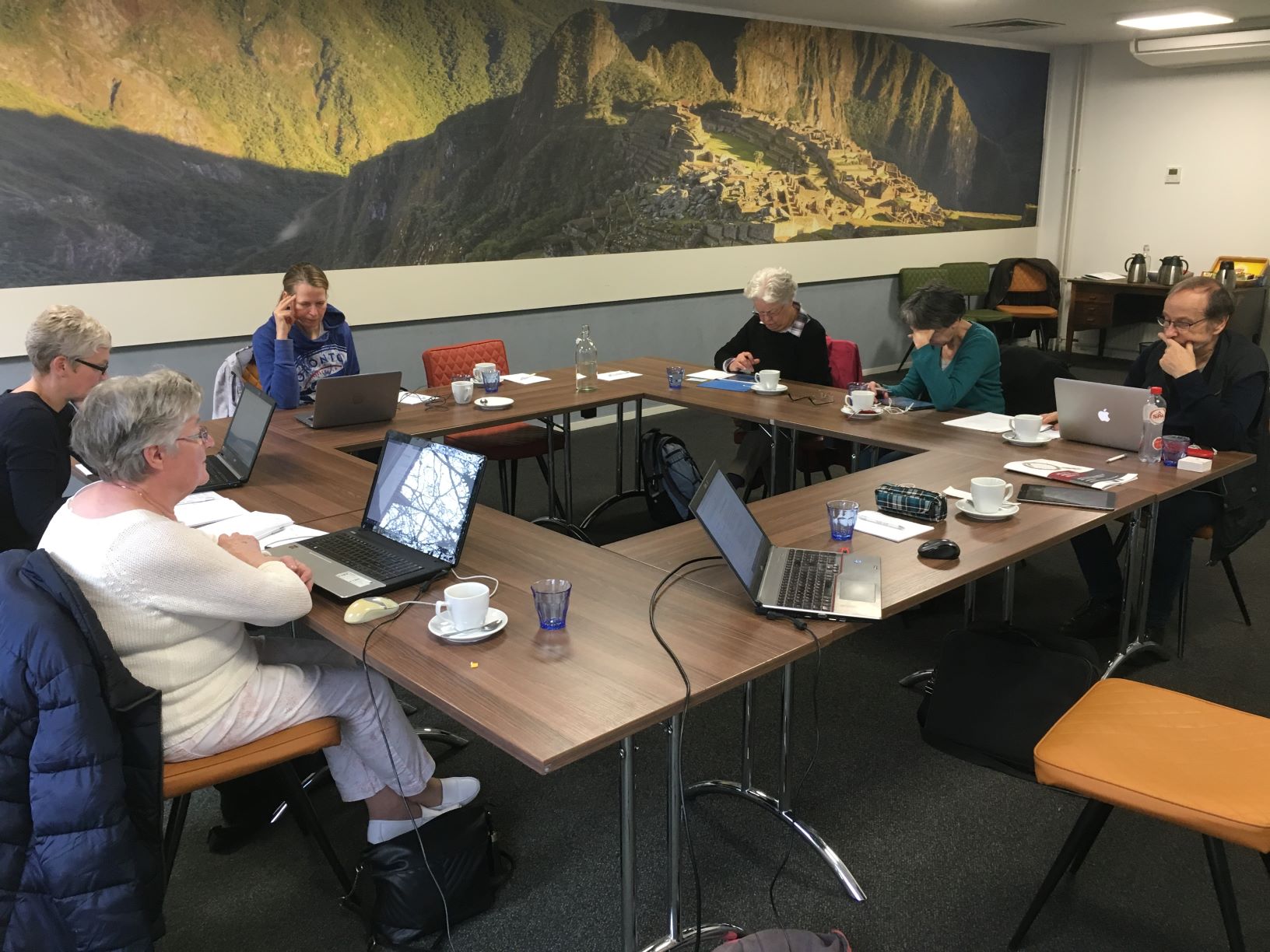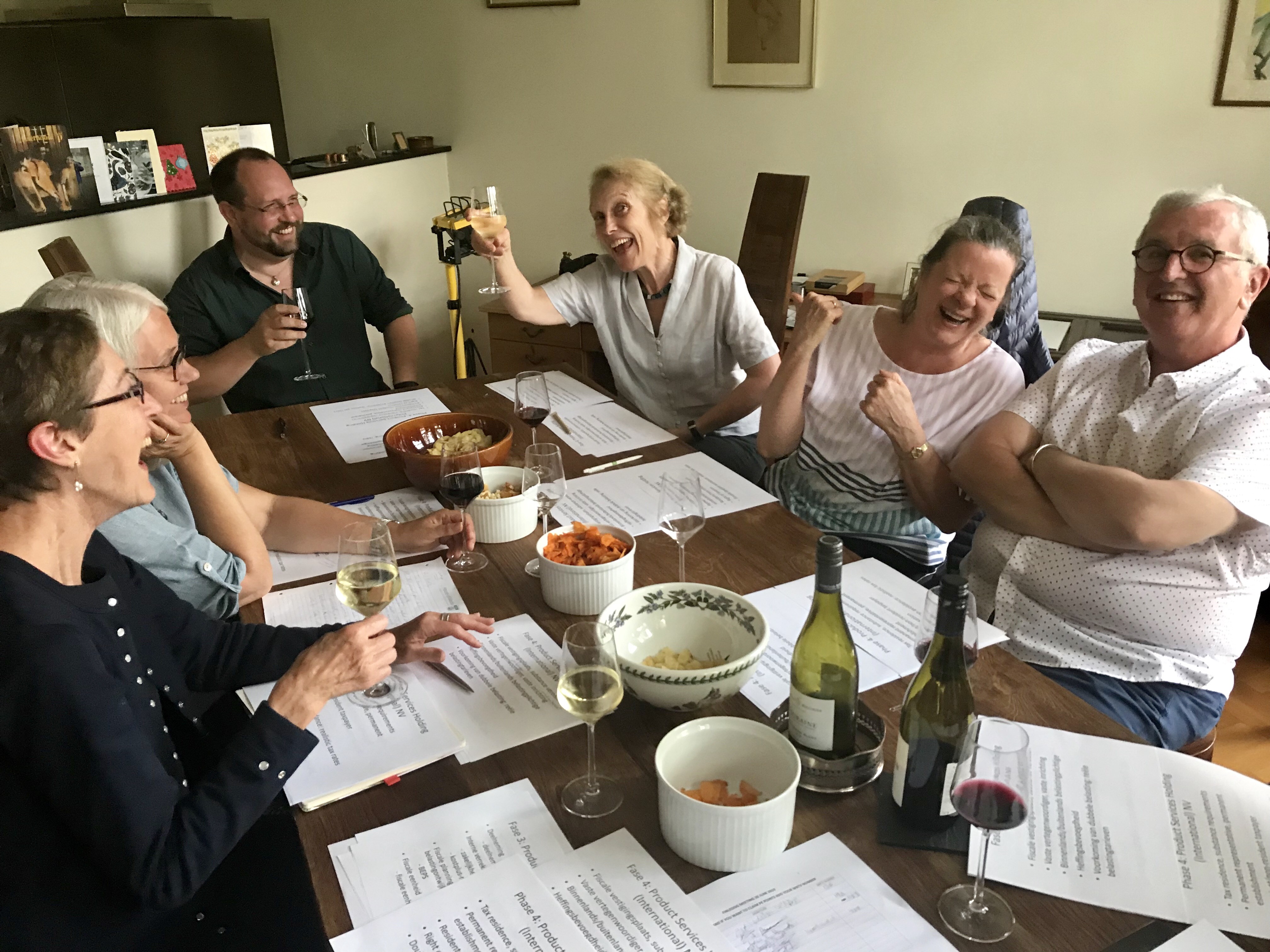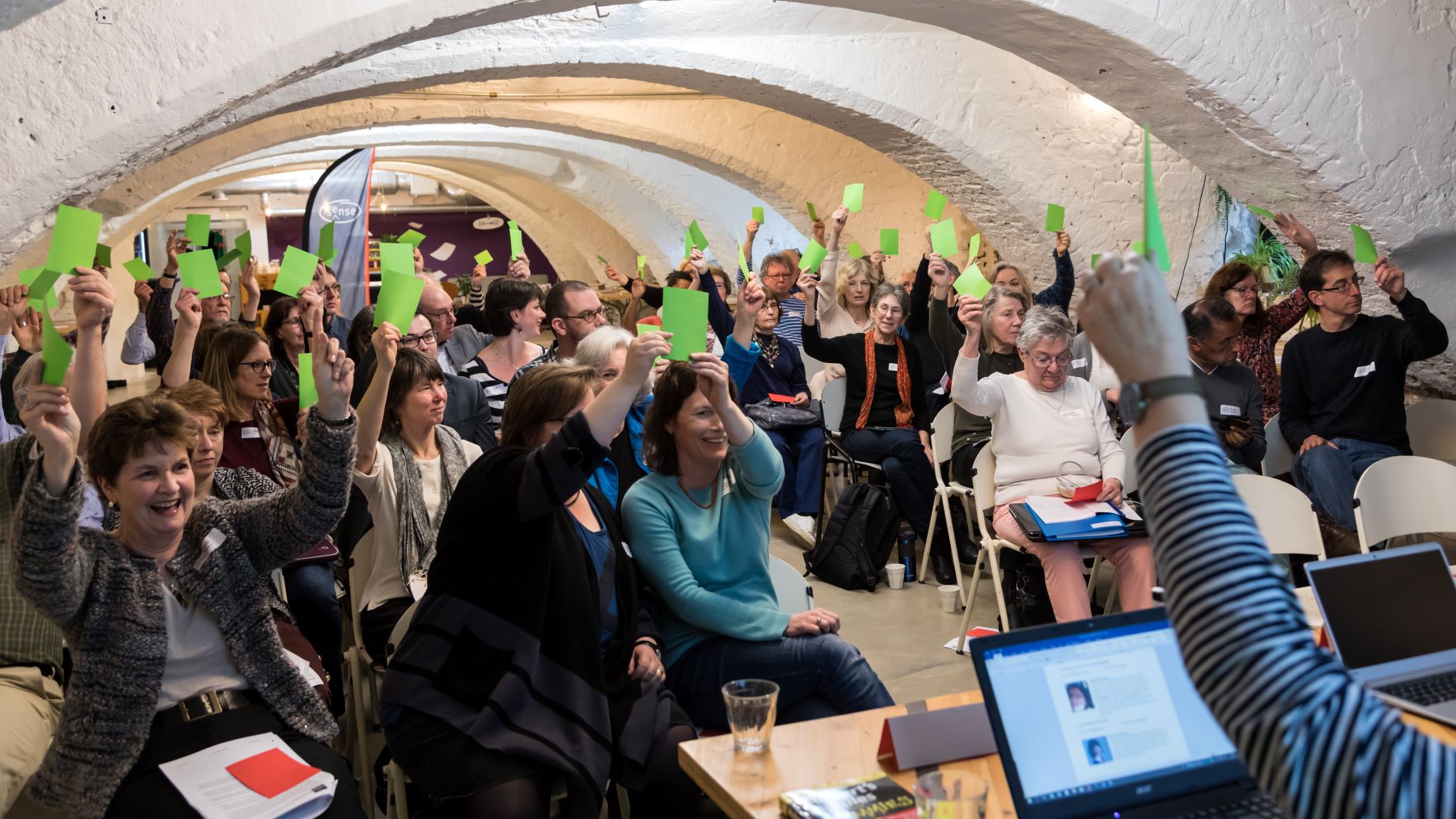
Photo by Michael Hartwigsen
Taking SENSE and making SENSE
We’ve just started a new decade, and SENSE has entered its third decade as a society. So, the time is ripe to broaden the Annual General Meeting's scope and to take it to a new level.
So, what’s on the menu? We’ll start by reviewing the society’s business over the past year: the 'taking SENSE' part. SENSE AGMs have previously been all-afternoon events. Now, in keeping with many other societies, the business part of the meeting will be much shorter (max. 1 hour) with a request to members to submit any questions in writing in advance. A shorter AGM does not mean compromising on our high standards of accountability and scrutiny, but just that the business will be conducted faster and more efficiently.
Now, of course, you’re wondering what will happen with the rest of the time. Well, we’ll use some of it to take a broader look at the society and what we can expect in the coming year: the ‘making SENSE’ part. This will also include an appropriate reflection on our thirtieth anniversary. Then we’ll take a leap into the wider world of language professionals by treating you to a talk by Claire King. She will be providing the English voice-overs for the Eurovision Song Contest later this year in Rotterdam.
Fortunately, some things are too good to change. Therefore, the afternoon will be rounded off with drinks and nibbles, giving you plenty of time to relax and chat with fellow members.
You can read the provisional timetable for the afternoon below, but first a word about this year’s location. We have chosen to host the AGM at Kargadoor, a cultural podium in the heart of Utrecht. By renting the facilities at Kargadoor, SENSE is supporting the highly diverse programme of cultural events offered there. We have the large room on the ground floor, which includes plenty of space for the traditional pre-AGM book swap.
Provisional timetable
13:45 doors open – book swap and tea & coffee available
14:15 AGM business part (taking SENSE)
15:15 AGM looking ahead (making SENSE)
15:35 AGM tokens of appreciation for SENSE volunteers
15:40 Tea and coffee break
16:00 30 years of SENSE
16:20 Talk by Claire King
16:50 Members’ questions to Claire King
17:00 Wrap-up, followed by drinks and nibbles
Please note that the AGM is open to all SENSE members and the programme is free of charge.
The SENSE EC looks forward to welcoming you all at this year’s AGM. Further information about the business part of the AGM and the rest of the afternoon will be sent to members in the coming weeks.
Dave Thomas
SIG and Social Events Coordinator
In early December 2019, both the Ed SIG and UniSIG focused on academic writing. Below, Marianne Orchard reports back from the UniSIG presentation on editing texts for the humanities and social sciences. Jackie Senior tells us how the SENSE Ed SIG members discussed the use of online resources for academic writing.
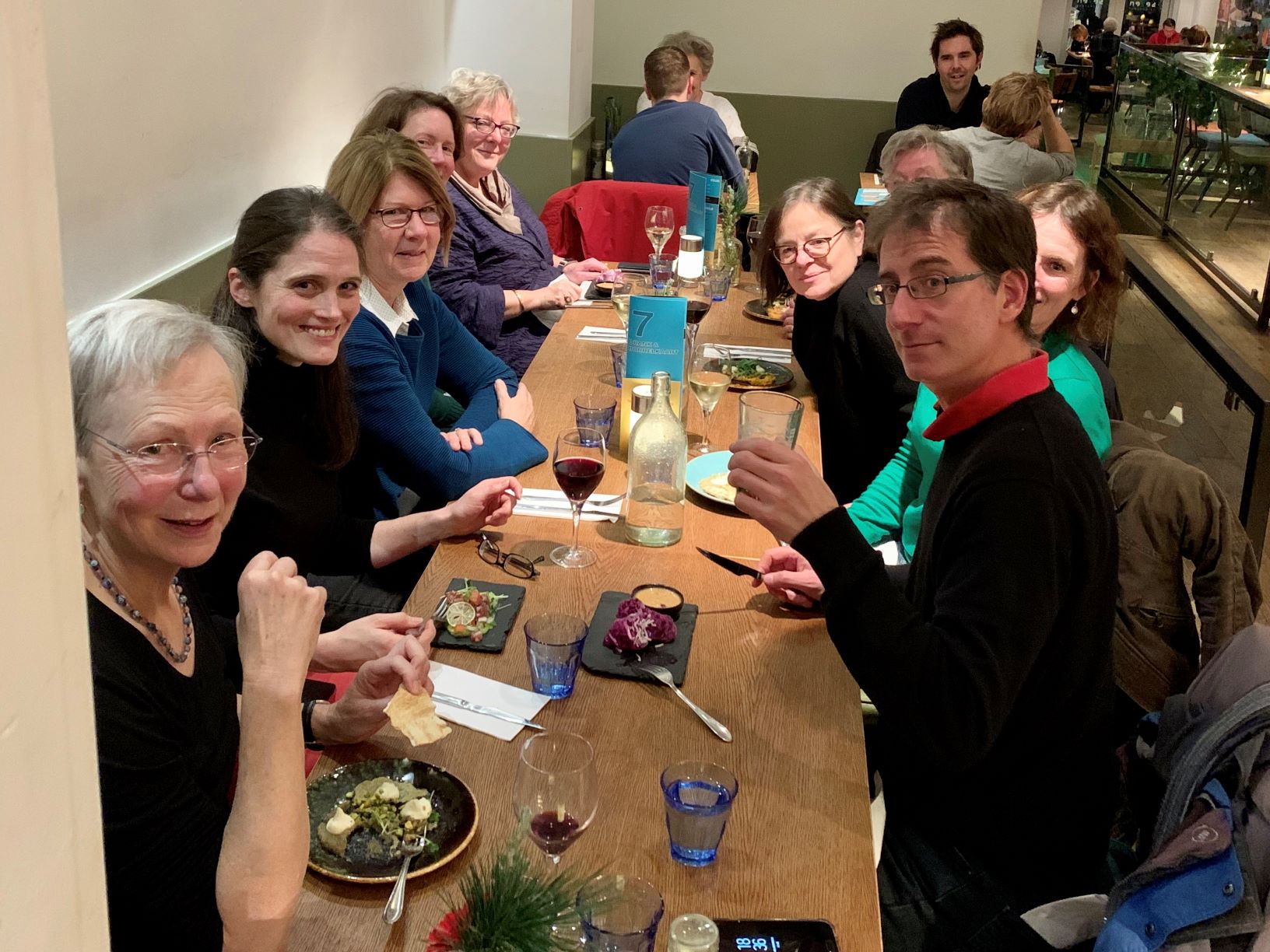
Photo by Theresa Truax-Gischler
UniSIG: Editing humanities and social science texts: theory and practice (Marianne Orchard)
Fourteen of us turned up for the UniSIG meeting at Se7en in Utrecht on Friday 13 December – as if we’d thought the venue would only accept multiples of seven. We’d come for a presentation by Theresa Truax-Gischler and Maria Sherwood-Smith on the American Council of Learned Societies’ Guidelines for the Translation of Social Science Texts.
The guidelines, Theresa explained, were developed to help those who commission edits and translations. ‘Given the potential of the social sciences to influence … millions of lives’, they declare, ‘it is incumbent upon both translator and editor to produce the most reliable translation possible.’
But what is a reliable translation or edit? Should you domesticate or foreignize? Maria had faced this conundrum when translating a Dutch book on 19th-century correspondence. In a more cerebral version of Snog Marry Avoid? she had had to decide whether to translate, gloss or borrow archaic forms of address such as uedele, wel edele and gij.
And given the importance of storytelling and voice in the social sciences, should you level stylistic peculiarities or allow a note of foreignness to enter the text? And what about errors in the source text? Translators and editors, say the guidelines, ‘…must not attempt to correct what they perceive to be errors in the text.’
We decided it boils down to whether you privilege the source text, as the guidelines prescribe, or the target text. However, as many of us have a direct relationship with the author, perhaps we are like quantum particles and can exist in two states at once: as both author’s and reader’s editor/translator.
Photo by David Barick
SENSE Ed: Online Resources for Academic Writing (Jackie Senior)
First, David Barick reported briefly on the EU-MIRoR conference (Methods in Research on Research) that he’d attended in Paris. This project aims to reduce wasteful clinical research and increase the value of research practice. Then we moved on to the main subject of the afternoon: discussing the numerous online resources for learning about writing in English and about academic writing. Such resources need to be chosen carefully to match the learners’ individual needs and the course being given: no easy task given the number of websites available. It is essential to first specify who will be using the resource, at what level, and for what purpose.
David provided a list of resources and we looked at some together. These included the Springer, Purdue University, Columbia University and CARS model websites. As these are generally large, text-based websites, selecting what to look at was sometimes rather difficult. We had a lively discussion on some of the advice given (so many language professionals, so many opinions) and then we did some of the online tests offered to students for them to check what they had learnt. However, we found we sometimes needed more than one go to work out what the correct answer was. This highlights one of the difficulties for students using websites on their own: there’s not always an explanation of what they’ve done ‘wrong’. A face-to-face teacher can point students in the right direction.
We found each website missed some points we would have expected to be covered, for example, the use of the passive, nominalization, writing for a specific field, or relating the instruction to the student’s native language and to their concept of formal writing. We then looked at the AWL (academic word list) Highlighter. This tool highlights the formal words used in academic texts and gives the writer an idea of how much they are using the correct sort of vocabulary. It also offers help on meaning and pronunciation.
For the second half of the afternoon, we looked at videos that explained aspects of academic writing. Some of these were less than inspiring and consisted only of a person talking to the camera, while others (e.g. a TED talk on How to use semicolons) used visuals to attract attention and explain more complex points. Several videos were rather simple and proved a slow way of gathering information (since many people can read a text more quickly than listening to a speaker).
In the end, recommending one website over another proved rather difficult. We finished on a lighter note with the suggestion that all writers and students should watch Helen Sword’s YouTube video on Zombie Nouns, and follow her advice on writing vigorous, verb-driven sentences.
Please consult the SENSE Members’ Forum to see a complete list of resources used during the SENSE Ed SIG meeting.
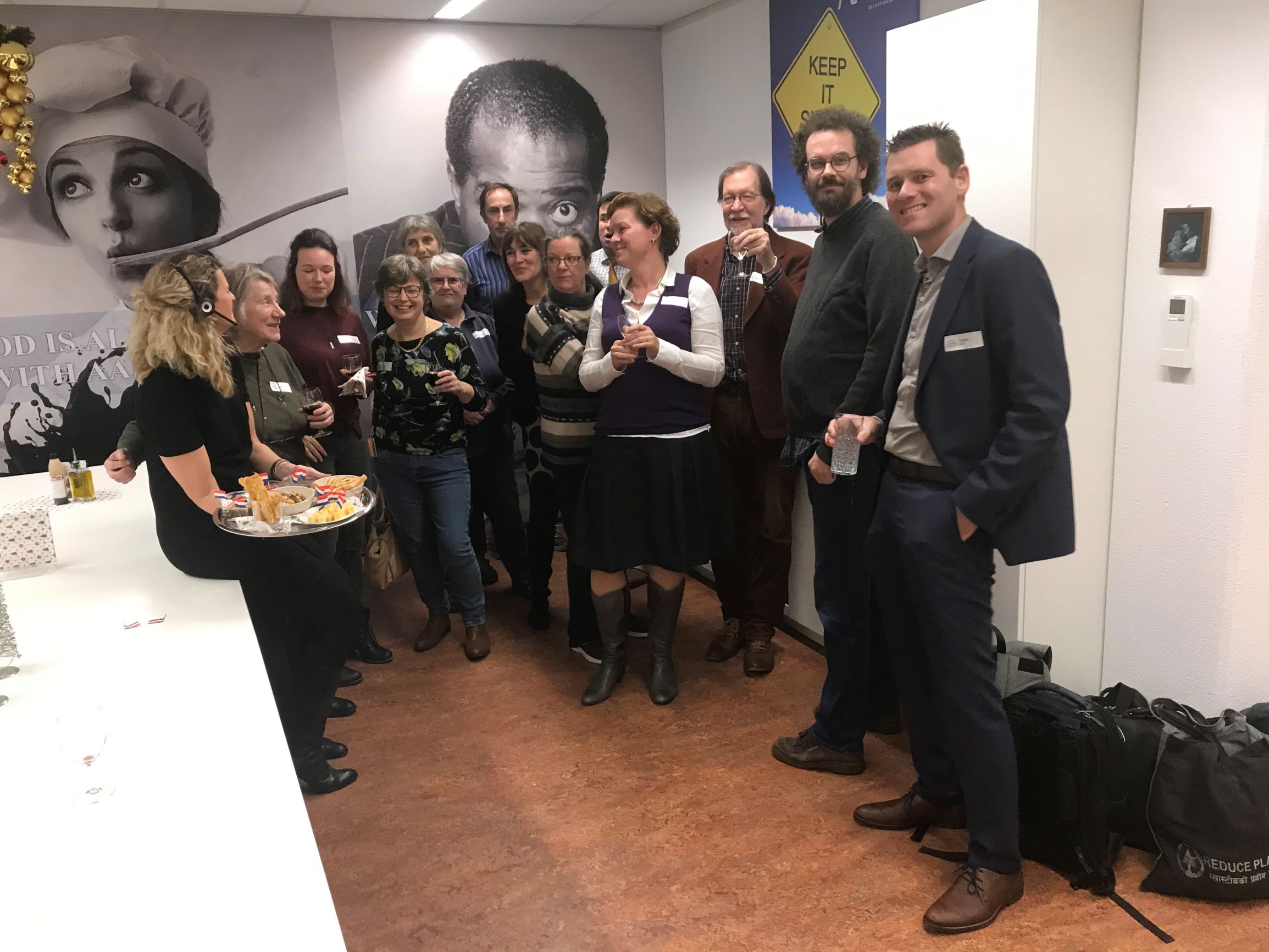
Photo by John Hynd
Whether it’s a blue envelope through the door or an email announcing Bericht van de Belastingdienst in uw Berichtenbox op MijnOverheid, either one is likely to fill you with dread at worst and irritation at best. So it’s no wonder so many SENSE members travelled to Delft on 10 December for the seminar Understanding Dutch tax for freelancers hosted by AAme Tax Consultants.
Tax advisor Quintin Eadie kicked off the proceedings with a comprehensive overview of the Dutch tax system. Among several subjects, he covered income tax procedures for filing returns, the benefits of having a fiscal partner such as a spouse or registered partner, and the different types of taxable income. He then went on to present proposed future changes to the Dutch tax system. These include a two-tier tax bracket system from 2021 onwards, the abolition of study costs as a deductible expense and the limitation of tax deductions to the lowest bracket. Of these changes, limiting tax deductions may have the biggest impact on freelancers. Although we will pay more tax in the long run, this may be offset by higher tax credits. This is by no means certain, however.
After a short coffee break, certified public ccountant Pauline Deelen-Aarts gave a presentation on BTW (Dutch VAT). She talked about the different categories of BTW – exempt, 0%, 9%, 21% – and where they apply. She also covered changes to the Kleine Ondernemersregeling and how to reclaim BTW paid on a bad debtor. Most importantly, Pauline highlighted the new BTW numbers coming into effect in 2020. Your new BTW number must be stated on your invoices and website (if applicable), but your old BTW number must be used in your BTW returns and any correspondence with the Dutch Tax Office. Nothing is simple when it comes to Dutch taxes!
During the BTW presentation, Jenny Zonneveld raised a question on behalf of SENSE members who have been approached by Scribbr, an online editing service for students. Besides paying low rates, Scribbr does not charge BTW, since it describes its services as ‘remedial teaching’ and therefore BTW-exempt. As this assertion is new to many SENSE members, we asked Pauline’s opinion. AAme will get back to us in due course.
Ronald van Leeuwen, certified public accountant, finished off the seminar with a presentation on fiscal benefits and various tips and tricks. He emphasized the importance of good administration and careful record keeping, including a daily record of hours spent on work and business activities. He also covered use of a company or private car and the SME profit relief, both of which are relevant to freelancers.
Like other attendees, much of the information presented was familiar to me, but it was good to be reminded on some points and have my mind put at rest on others. And as always, it was great to get together with other SENSE members and hear their tax experiences.
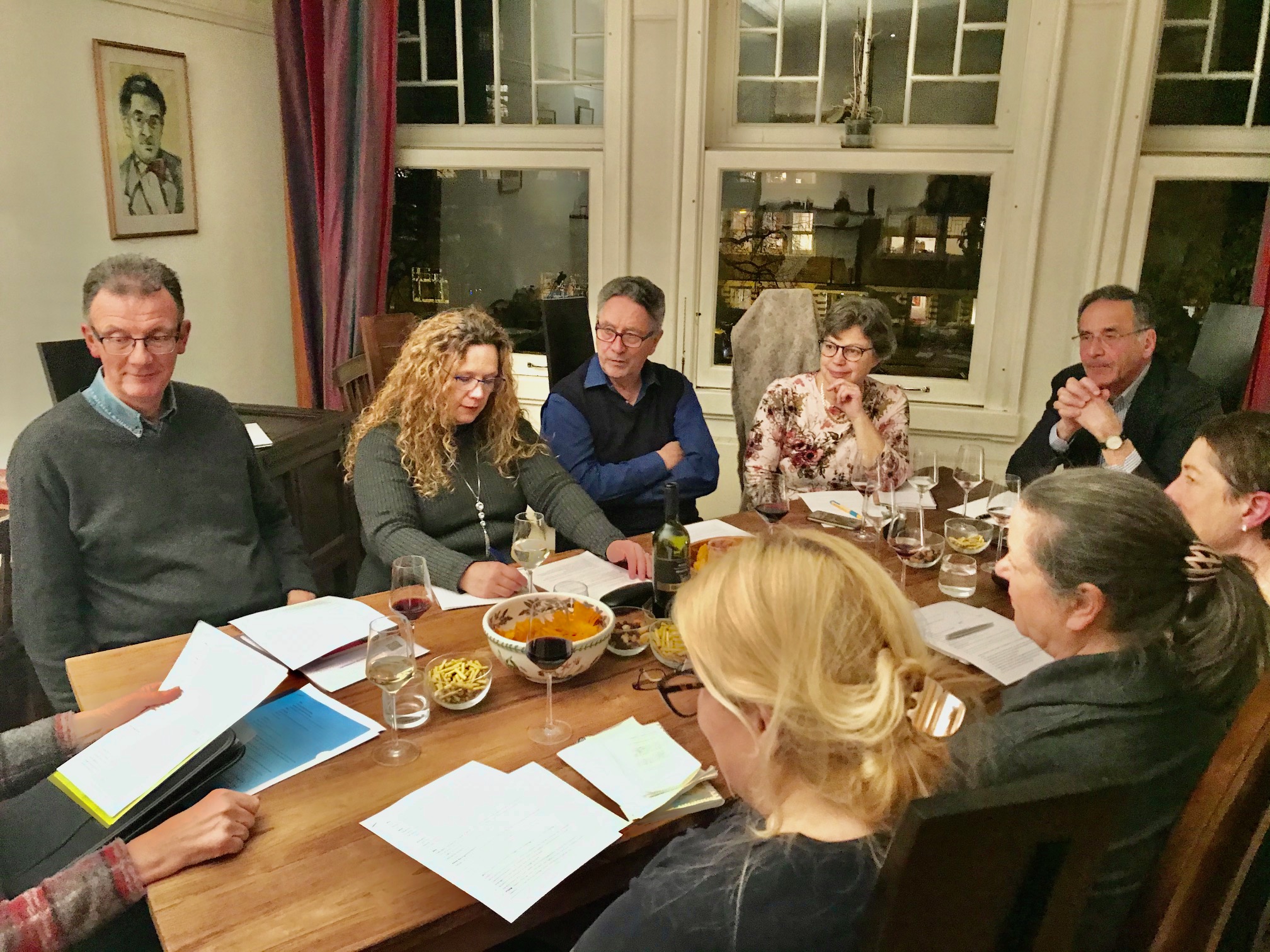 (Photo by John Hynd)
(Photo by John Hynd)
Nine of us gathered at John Alexander’s delightful Art Deco home in Amsterdam to discuss two barely comprehensible texts provided by Alison Gibbs and to learn from her extensive experience as an editor and translator.
While we munched on the nibbles and savoured the wines, Alison enthusiastically described her own types of work and clients, dispensed useful pieces of advice and outlined common pitfalls. One of her key suggestions (originally contributed by a wary/weary handyman) was to ‘know when to stop’. Other warnings included to avoid wasting time on grammatical blunders encountered during one’s everyday life: “There are more productive ways of channelling my nit-pickery than correcting greengrocers’ apostrophes.”
A dizzying array of practical and professional tips followed, including on how to assess jobs, clarify clients’ expectations, charge for one’s time, review editorial changes, use online tools and resources, and check for common errors.
While still attempting to digest this rich diet of advice, we gingerly bit into the two texts – and quickly stubbed our teeth. It was generally agreed that the almost impenetrable one about the Azores was worth steering clear of, while the taxation one was to be attempted only by the most intrepid souls (or those with serious insomnia). Alison’s own versions, however, read like an English-language dream – attesting to her dedication, finely-honed detective skills and feminine intuition.
We ended the evening much the wiser, not to mention a little the merrier. Hic!
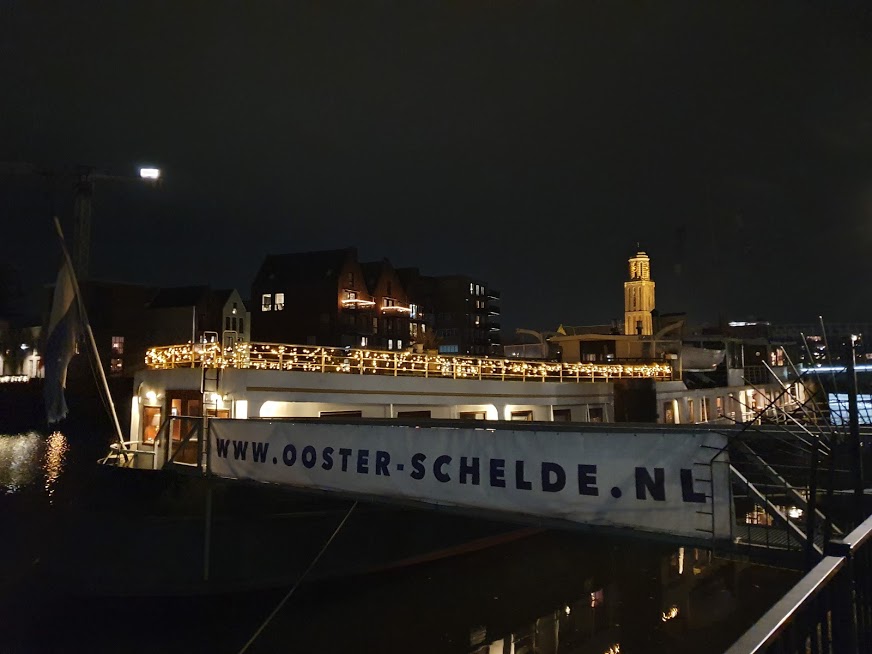
On Saturday 16 November, about 35 SENSE members and their partners gathered on board the historical Ooster-Schelde in Zwolle for good food, good fun and good conversation. Although the ship’s low ceiling proved somewhat challenging for anyone over 1.75m – yours truly and partner included – the location was very gezellig.
Dave Thomas welcomed us all and introduced the evening’s entertainment: acoustic duo The Tickets treated us to a range of ‘classics from the golden age of pop.’ While it proved difficult to hold a conversation without repeating yourself, the music definitely added to the hearty atmosphere.
Daphne Visser-Lees had come up with some excellent icebreakers to get us all off to a good start. We kicked off with ‘pin the apostrophe on the word’: after being blindfolded, Ellen Singer, Curtis Barrett and Daphne herself valiantly tried to provide increasingly complicated words with the correct punctuation. Naturally, those in the audience did their best to confuse them. Qu’est-ce que c’est?
The informal arrangement of chairs and tables were ideal for mingling, and the starters (warm beetroot and goat cheese salad, followed by a tumbler of pumpkin and tomato soup) were plated in such a way they could be enjoyed while standing. A very good start!
The main course consisted of a buffet and offered a variety of dishes. On a personal note, I was somewhat disappointed that two out of the three previously advertised vegetarian options were, in fact, not on the menu after all, but the remaining option and side dishes proved very tasty.
Once dinner was cleared away, it was time for another classic party game: pass the parcel! And what a sight it was: thirty-odd adults trying to gauge what was in each gift before reluctantly passing it on to the next person. Sadly, I didn’t go home with the coveted set of full-sized Toblerone bars... Enid Tomkinson regaled us with two poems recited by heart, and then it was back over to The Tickets for another set.
Any lingering doubts about the food were swiftly diminished once dessert was served. Apple pie and tropical hangop and chocolate mousse, oh my! After that, some more mingling and informal conversation over drinks. All in all, a highly enjoyable evening: definitely ‘voor herhaling vatbaar!’
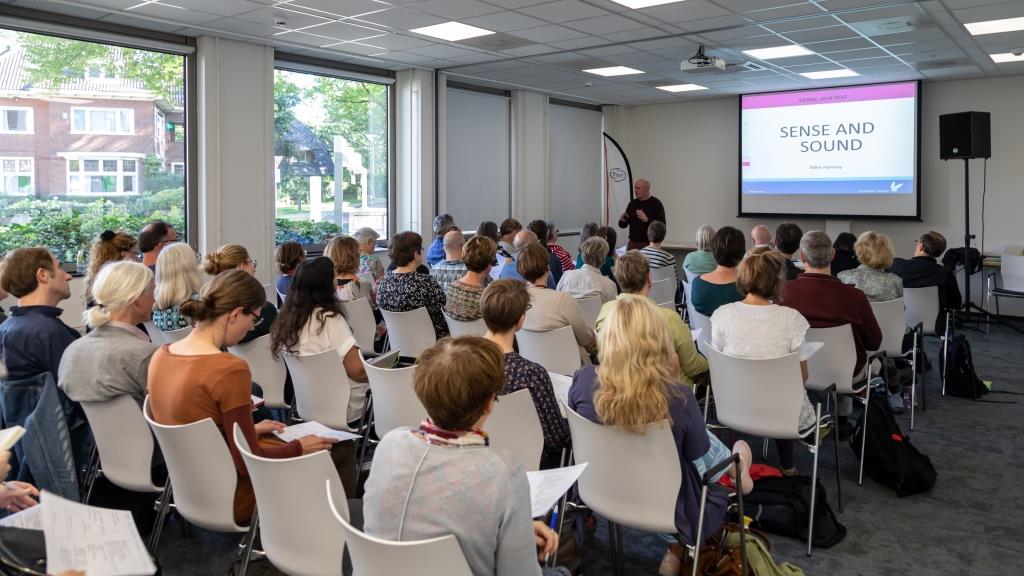
On 21 September, SENSE held its biennial Professional Development Day (PDD) for editors and translators. I was excited to be attending my first SENSE PDD! The two plenaries and four parallel sessions ensured there was something for everyone – editors, translators and copywriters alike.
After some coffee and networking, the day started with a plenary lecture by Jenny Zonneveld, who gave us a number of valuable tips on how to gain repeat clients: be an expert in your field, network, attend events, and build sound relationships. She warned us that this will require leaving our comfort zone, though!
Next, I attended a fascinating presentation by Dianna Beaufort on writing and translating in architecture and urban planning. Dianna guided us through some problems caused by ‘architecture and urban development speak’ or false friends. Translating een karakteristieke oppervlakte into ‘a characteristic surface’, for example, does not work!
Peter Smethurst presented the next talk I attended, titled ‘Translating for fun and profit’. He made us privy to his workflow and provided us with a number of useful tips: do not fill in more than 90% of your time, have the computer read the text to you when you are done (to check for errors), and prove to the client that you add value by pointing out mistakes and querying anything that is unclear.
After a traditional Dutch lunch that included kroketten and milk, it was back to business with a presentation on estimates: Jenny Zonneveld and John Linnegar urged us to take our entire workflow into account when preparing our quotes. We discussed the different ways in which we charge for time spent on admin and communication. John mentioned a handy word-count tool called PractiCount which helps editors and translators estimate how long their job will take.
Next up were Jackie Senior and Dr. Kate McIntyre, with a fascinating and hopeful presentation on the role of language professionals in academia. Higher education in the Netherlands is increasingly English-speaking, which creates many language needs. Language professionals in academic settings are not only providing editing services for grant proposals, journal articles, and dissertations, but also helping draft universities’ internal communications in English and teaching writing courses.
The final lecture was by Dr. Mike Hannay on flow, rhythm and balance in writing. He told us the key to writing that flows is variation. Good writing is attractive, clear and coherent, genre-faithful and accurate. He also discussed prosody and the study of rhythm, meter and intonation in poetry. Mike’s handout provided many examples of problematic copy, and it was great fun working through them with other language professionals.
The day ended with the announcement of the location of next year’s conference (which was delivered through a game of Hangman) and a lovely borrel (of course accompanied by bitterballen). This gave me the chance to finally meet some people I had interacted with only virtually, and to make some new friends. I am definitely looking forward to attending next year’s conference in Maastricht!
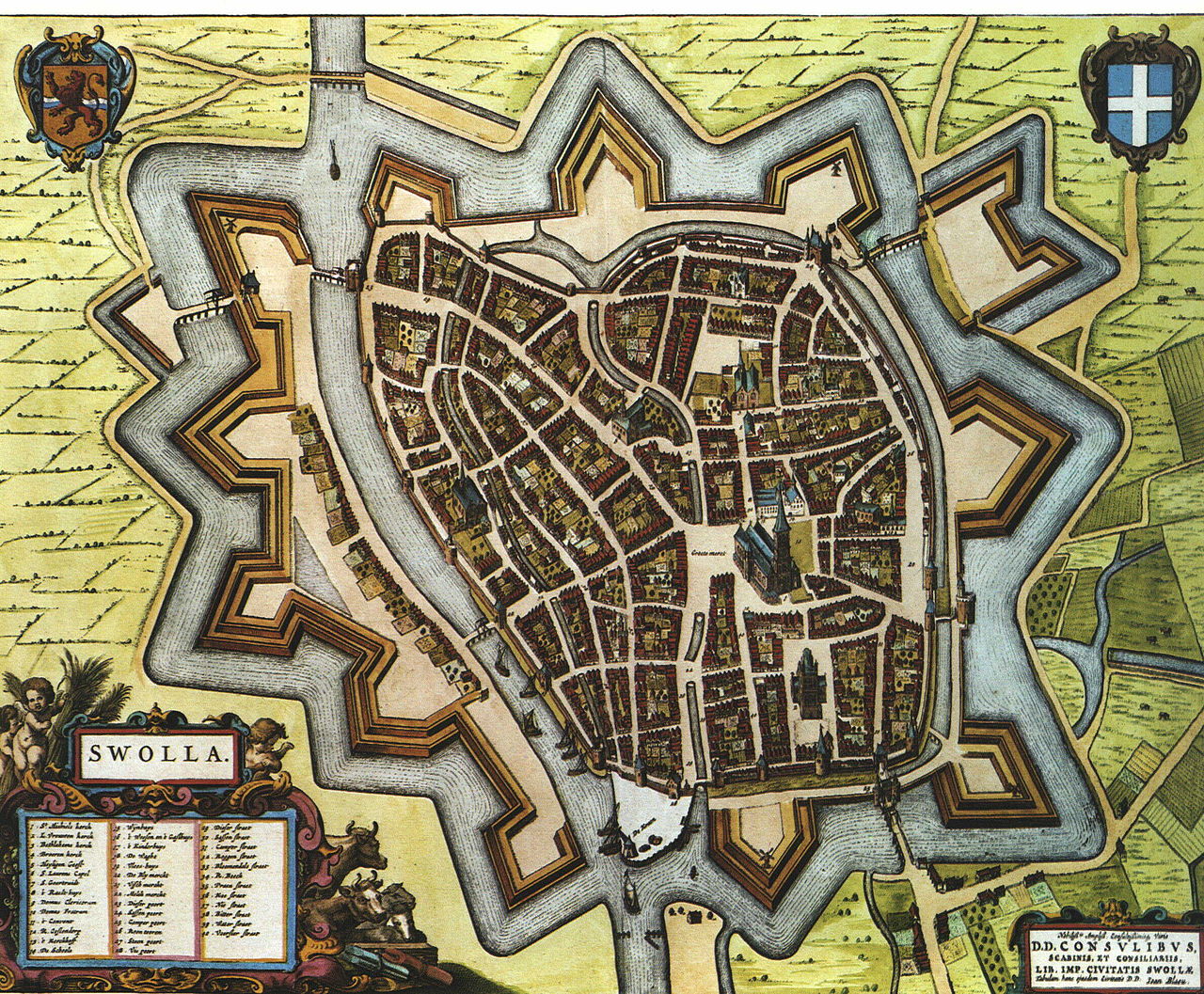
Historical map of Zwolle (from Wikipedia)
One drizzly afternoon in downtown Zwolle, Eastern SIG’s autumn borrel took place in the cosy confines of Winebar OAK. Billed as an informal ‘catch-up’, it wasn’t all-play-and-no-work that made this meeting such fun. We talked shop, of course, whilst tucking into plates of delicious snacks and knocking back (but not over) a glass or two of a somewhat tart yet surprisingly good Spanish red, ordered no doubt to train our palates for METM20 next year.
Among the tabled topics were ‘winding down working hours once you’ve hit retirement age’, and a perennial problem for zzp-ers: ‘chasing defaulters’. This reminded a superb storyteller of when she was a novice translator/feisty detective and tracked down the real home address of a con-man/client, whose letterhead stated ‘with offices in London, Paris and Emmeloord’ (she should have been warned) and, assisted by the Fraud Squad, managed to get paid. In full.
Talk of payments turned to the price of things in general, like the cost of booking a venue for a network of medical and science writers. Amsterdam Public Library, it seems, is conveniently close to Central Station and quite an affordable établissement when ten or so people turn up. Somewhere for SENSE to think about? This suggestion inspired a spate of word-perfect Français on the juste rewards of living and working in France (I think).
Dwelling on the good things in life brought us to the SENSE dinner, being held this year on the good ship Ooster-Schelde. Built in 1933 and originally a ferry for the Provincial Steamboat Services in Zeeland, the ship is moored in Zwolle, an understandably glad fact for local members who seem keen to welcome this SENSE event to their town. Despite its dozy reputation, Zwolle is anything but dull, not even in damp October, judging by my walk along the picaresque vesting and winding lanes to the venue. This peppy town has a long and glorious history, indeed a history so long its Golden Age (oops) predates the rest of the NL’s by a century at least. Take that, Hollanders!
But I digress. It seems that most of the eight or nine members present are coming to the dinner, most with partners in tow, and we’re eagerly looking forward to the chance to mingle with colleagues, talk shop and simply have fun chattering in English, just as we did at this social.

On 6 September, 11 SENSE members attended the freestyle UniSIG meeting at which attendees introduced the topics. The wide range of topics included those listed below.
WOinActie (https://woinactie.blogspot.com)
Mention of this movement defending the interests of university education led into a broader discussion about the cuts to university funding that fuelled the ‘red felt squares’ protests by academics at the start of the academic year.
University language centres and their influence on our work
Language centres are also providers of work but do not always pay good rates. Since they are now often independent services rather than part of a university, we wondered how they manage to avoid charging BTW for their internal (university) clients. Here the point was also raised about the need for the editor/translator to have direct contact with the client/author and how third parties and agencies discourage or do not permit this.
Indemnity insurance
Most attendees did not have such insurance, but one said it gave her peace of mind; several said that clients required them to have it. An indicative price of about €600 per annum was mentioned.
Expected rates for someone embarking on a career as a translator but working mainly for agencies
These are generally rather low, but it takes time to find your way and acquire independent clients.
The editor’s role as a teacher
Most editors of academic texts consider at least part of their role to include acting as a writing coach, pointing out mistakes made in style, terminology and grammar, and even content for those who are also subject experts.
The pros and cons of taking on pro bono assignments
These can sometimes lead to a fee-paying client, but it is often a case of being caught in the moment and just saying yes to such work! We agreed you often do not know what you’re getting into at the start of such projects, so the advice is to clarify as much as possible.
Using academia.eu and researchgate.net (see also https://en.wikipedia.org/wiki/Academia.edu and https://en.wikipedia.org/wiki/ResearchGate) to keep abreast of relevant research (eg on editing student texts)
Once you’ve registered and indicated your interests, you can search for papers and chapters and upload any of your own work to share with the community. Both sites will also suggest literature on topics that could be relevant to you. The documents can be downloaded from links on their websites, or the author(s) can be contacted via the form the website provides. For ResearchGate, you need to register with an institutional email address.
Whether students benefit more from courses that are based on writing across the curriculum or from courses focusing on writing within a discipline
Over half of the attendees also teach academic or science writing. There was no consensus as to what type of course is more effective, as much depends on factors such as group size and students’ linguistic, cultural and disciplinary backgrounds. A biomedical editor suggested consulting the guidelines on science publishing practice and writing available on the British Medical Journal (BMJ) and Clinical Orthopaedics and Related Research (CORR) websites. See https://www.bmj.com/about-bmj/resources-authors and http://tools.clinorthop.org/author-guidelines
SENSE Guidelines for Proofreading Student Texts
Are they being circulated and referred to? Why is the ethics of editing student texts not a hot topic in Dutch academia? We concluded, regretfully, that there is little interest among academics here.
Plans to revamp language teaching in Dutch schools, so that pupils are made more aware of the power of language for expressing ideas and are better equipped to express themselves in writing when they reach university
Dutch schools have so far not placed much emphasis on learning to write well. New approaches are on the horizon.
Our meeting was held in a room on the first floor of Restaurant Se7en in Utrecht. The facilities were not as modern as those of Park Plaza, but the general opinion was that this is a convenient and pleasant venue for meetings and serves good and reasonably priced food. Unfortunately, it does not have a lift.
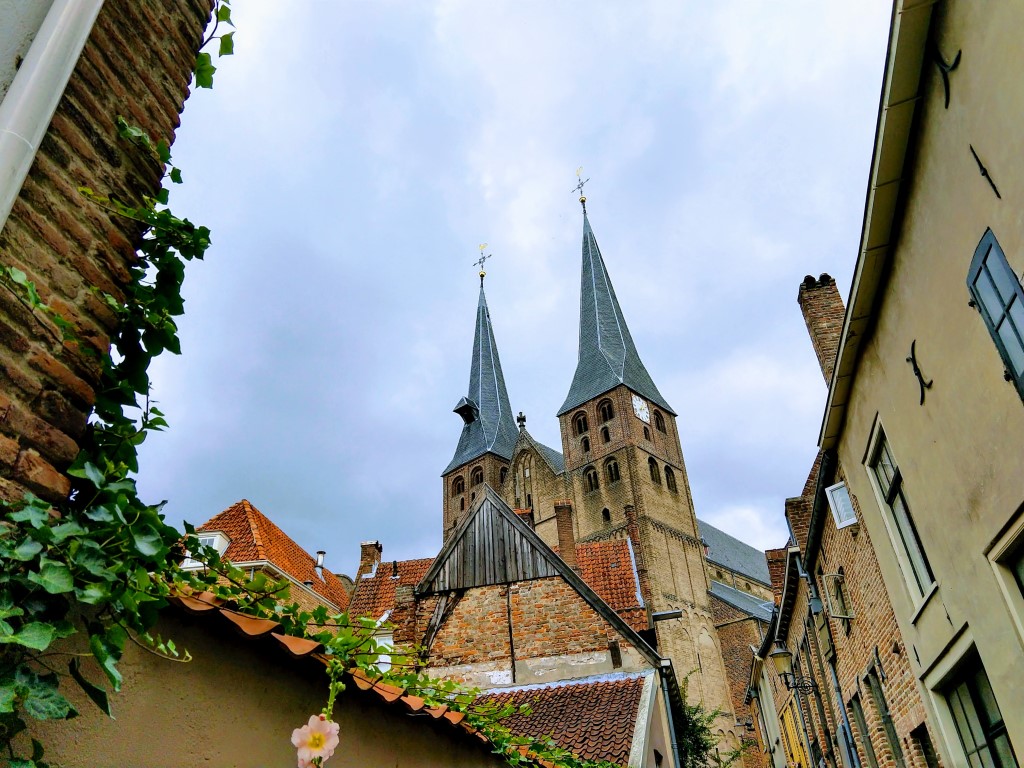
On Sunday 14 July, a group of nearly 40 SENSE members met in lovely Deventer for an afternoon of leisurely fun. We started with a guided walk around the historic Bergkwartier. Over the course of an hour, two knowledgeable guides showed us some of the city’s centuries-old sights (did you know Deventer is over 1,250 years old?) as well as its more modern gezelligheid. One of them even switched to English to accommodate us – very thoughtful!
We ended the tour back at our starting point, then split into groups for the other afternoon activities: a Brain Art Workshop at Atelier ARToMoNDo, a beer tasting at local brewery and taplokaal Davo or a look at the Charles Dickens Kabinet.
The ARToMoNDo group was welcomed by Marianne de Bakker, who explained that people use both hemispheres of the brain to draw. The left and right hemispheres control different functions: the left half is for rational activities like language and reasoning, as well as maths and science, while the right half controls art awareness, creativity, intuition and insight. Marianne showed the group a fun way to access their artistic and creative abilities, by not looking at the paper as they were drawing. One attendee said: ‘The hardest part for me was to remember which bits I had already drawn and – when I had taken the charcoal off the paper – where to start drawing again! So one of my subjects ended up without any hair!’
The beer tasting took place at Davo’s own proeflokaal, located in an old factory. The café was buzzing with activity, and the beer garden in the back was nearly full. Clearly, this is the place to be for Deventer beer lovers! Attendees were shown into a private room, where one of the brewers told them all about how to brew different kinds of beers. The tasting involved three different beers: their most popular ale, a dark beer that was a cross-over between a double and a stout, and a tripel that was deceptively doordrinkbaar. He also shared the story behind their brand, talked about the challenges of scaling up and offered a sneak peek of what the future will bring. After a quick tour of the actual brewing facility just across from the bar area, it was time to head to De Fermerie for drinks and nibbles. Several of the attendees made a detour past the gift shop on their way out…
The Dickens group was big and had to be split in two, with one half being guided through the Dickens Kabinet on the ground floor, being fed titbits of gossip and fun facts. One British attendee said, ‘any snobbish feelings of “What the dickens are these Dutch people doing with our author?” disappeared immediately’ at the sight of the pure enormity of the collection and at the knowledgeability of their guide. The other half went upstairs to be charmed by Emmy Strik, who led them around her enormous collection of costumes – some custom-made, others rescued from imminent destruction, some made by the townspeople who wear them to the annual Dickens Festijn. One member said: ‘It really wasn’t my thing, any of it, and yet it was! Loved it!’
Once the breakout activities were concluded, everyone met up at café De Fermerie, where SENSE picked up the tab for the first round of drinks. We had the whole space to ourselves, which made for easy conversation and plenty of seating opportunity. Attendees swapped stories about their chosen afternoon activities over a drink or two, as the owner made the rounds with several types of tasty vegetarian borrelhapjes. All in all, a great way to welcome summer!
Nine of us gathered at John Alexander’s place in Amsterdam for an excellent sparring session over a glass of wine. I don’t think I’ve ever had so much fun discussing taxes!
Rob Bradley took the title of his presentation from Jean Baptiste Colbert, a French Minister of Finance under Louis XIV, who said that ‘the art of taxation consists in so plucking the goose as to obtain the largest amount of feathers with the least amount of hissing.’
Rob described what it’s like working in this market niche:
Challenges
- Tax legislation is constantly changing, which means you always check and take nothing for granted.
- The Dutch names for specific taxes often don’t accurately describe what they are. Kapitaalbelasting, for example, is not capital tax. Fiscaal almost never translates into ‘fiscal’ (except in ‘fiscal unity’). So translate tax names literally at your peril!
- There are no official translations, so you need to choose a translation yourself that makes clear what the tax actually is or does. It’s good to picture your reader as a Japanese CFO.
Perks
- Good rates. Specialist translators are few, and the lawyers themselves earn such high fees that clients are not likely to complain about your bill.
- Steady income: no matter what stage of the business cycle, tax and tax-related translations will always keep coming.
- ‘The juicy bits’. Tax documents are about real businesses, and you’re likely at some point to encounter drama like bankruptcy, fraud or hostile takeovers.
We then discussed Rob’s handout (content available to SENSE members only), which followed a hypothetical company as it grows and starts to form a group – first domestically, then internationally. After that, we talked about what facilities and arrangements the company can use to optimize its tax situation, and how it interacts with the tax authorities. The handout provided attendees with Dutch and English terminology relevant to each stage in the company’s development.
Rob explained the many finer points brilliantly, like the difference between a vrijstelling and an aftrekpost, or between loonbelasting and loonheffing. He also explained base erosion and profit shifting (BEPS) and the arm’s length principle.
Rob helped us understand how tax rulings used to work: the national government and the company negotiated the total tax bill the company would have to pay. Today, the company and its tax lawyers propose a specific corporate structure, and the country’s tax authorities provide advance certainty on its tax treatment. A ruling is far more tightly controlled and above board. Its validity is limited to four years. During that time, changes in legislation can override agreements in the ruling.
There was a lively discussion on the shift in public opinion on tax planning by companies. In just a few years, this has gone from ‘smart’ to ‘immoral’. Then and now, the object of tax planning is 100% legal tax avoidance, rather than illegal tax evasion. Let’s face it, none of us want to pay any more than we have to, whether we’re multinationals or freelancers! Though as one member remarked, it is some consolation to see your tax money relatively well-spent, as it is in the Netherlands.
One member said: ‘I thought the speaker was very knowledgeable and I will certainly use his handout in future as a reference. His understanding of his field and his craft are impressive.’
We wrapped up with a big thank-you for Rob and our host and convener John. Alison Gibbs has offered to present at our next meeting after the summer. Topics buzzed round, but she’ll let us know nearer the date. Watch this space!
For further reading, see the International Financing Reporting Standards (IFRS) as adopted by the EU (multilingual display optional). Individual language versions of more recent IFRSs are also available in English and in Dutch.
